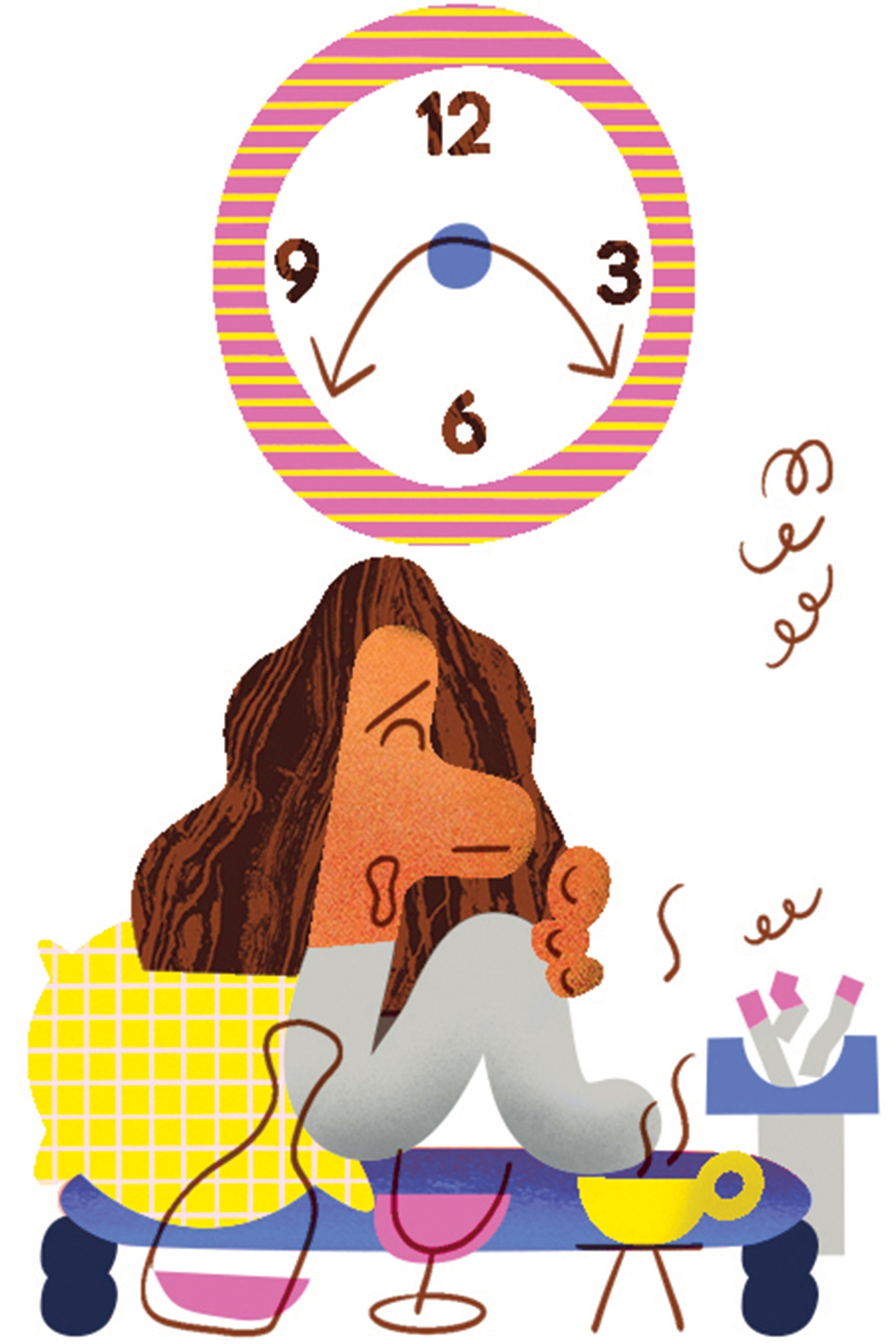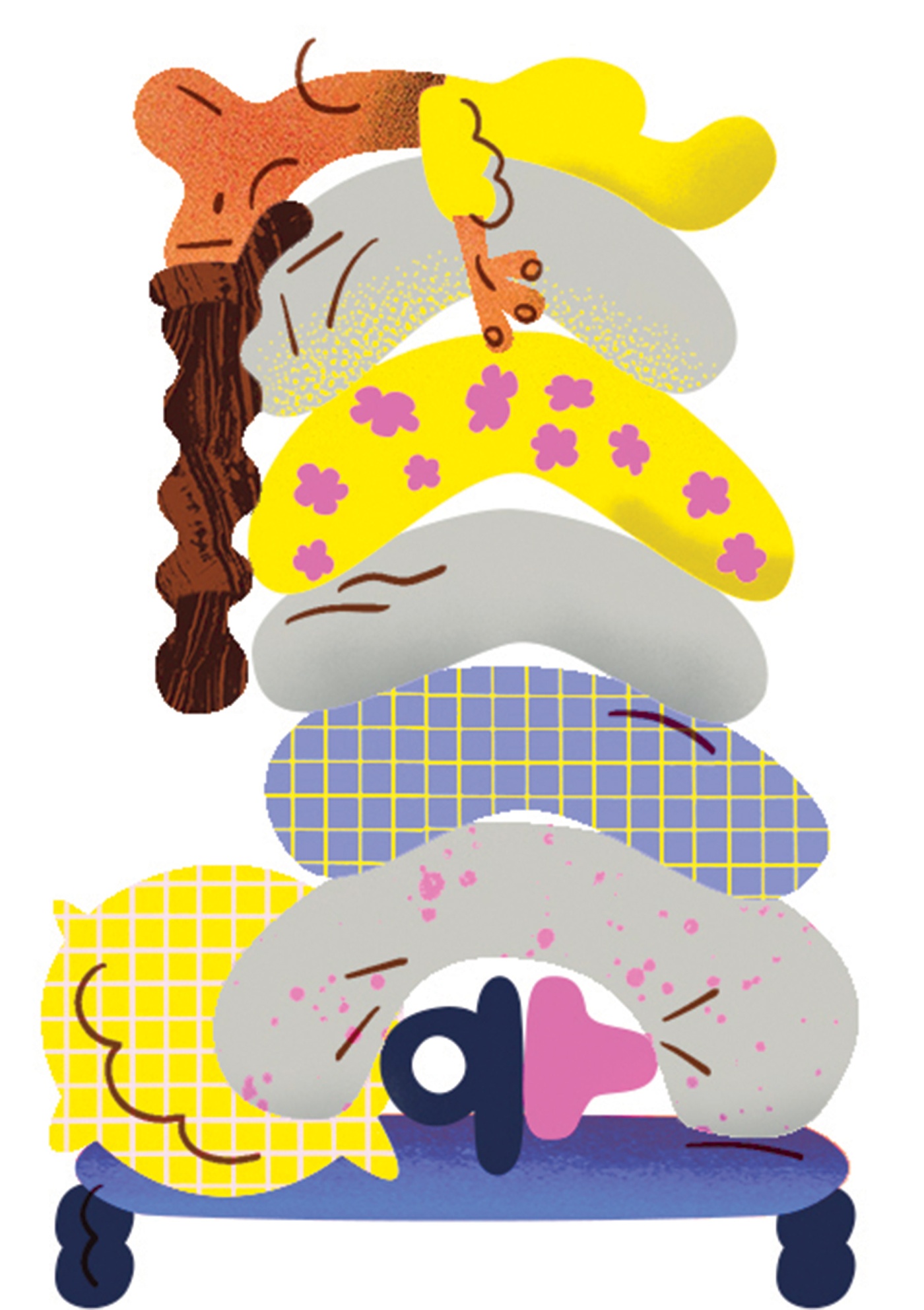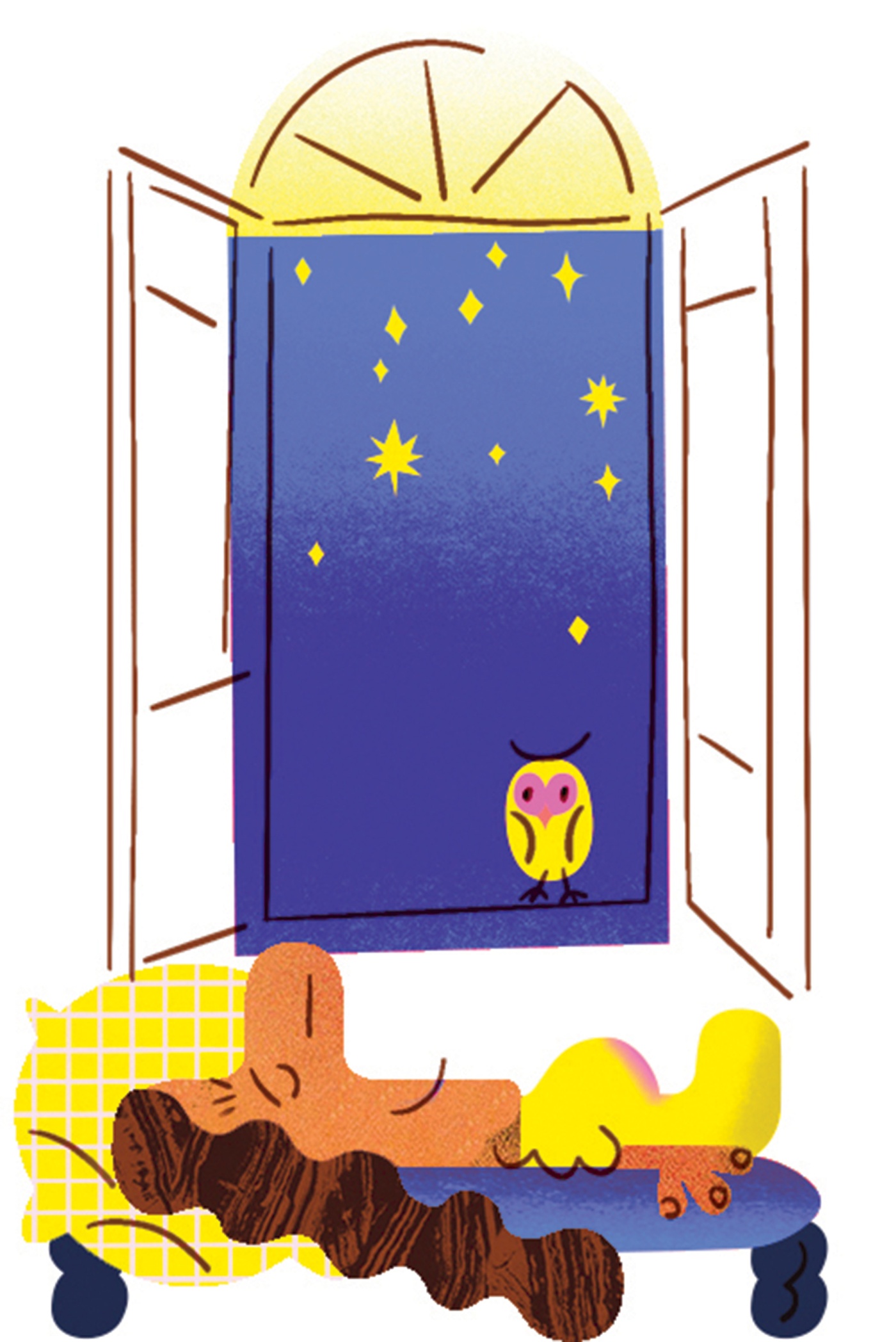Rest Easy
An expert on why good sleep often eludes us
Shelby Harris ’00 is a clinical psychologist in private practice in White Plains, New York, specializing in treating sleep disorders. She’s author of The Women’s Guide to Overcoming Insomnia and director of sleep health at sleepopolis.com, which provides information on mattresses and sleep health and hygiene. Harris spoke recently with BAM contributing editor Stephanie Grace ’87 about getting a good night’s sleep.

Your book focuses on women and insomnia because they’re disproportionately affected. Is it just the hormones or are there other factors?
It can be a multitude of things, and it can be hormones at various ages.
What we find is that boys and girls have the same rates of insomnia up until adolescence, and when they start to have a period, that’s when insomnia really kicks off more for women. Then pregnancy, postpartum, perimenopausal hormonal changes….
There are also social factors. Women are often stretched really thin. They’re working and then they’re also taking care of families. And women tend to have higher rates of anxiety and depression.
So is it that they have trouble turning off their brains?
Yes. It’s like they are trying to multitask constantly and can’t find any time to really wind themselves down. And the other thing we see a lot is—they call it revenge bedtime procrastination.
What is that?
It means that you’re so busy taking care of everyone else, and your job, your kids, that when bedtime comes you just want to zone out and binge watch TV or scroll on your phone, and you delay going to sleep. So it makes it harder to wind down.

Are there particular issues that men with insomnia have?
They tend to have more sleep apnea than women. Snoring, choking, gasping, that sort of stuff. Once you get to the 50s for men and perimenopause age for women, that’s when the rates even out.
What is “sleep hygiene?”
Hygiene is all things that are good for sleep health, that you should do as often as you can. So it’s limiting caffeine after about noon or 2:00, limiting alcohol within three hours of bed, limiting screens before bed, making sure you get light in the morning and dark at night, cool bedroom, consistent bedtime and waketime. That stuff is wonderful for people to try and follow as often as possible, but if you start to have an actual sleep disorder that’s happening routinely, like insomnia, you can’t “sleep hygiene” that away.

Why is a bedroom’s temperature important to sleep health?
What happens in your body is that when you go to sleep at night, about an hour or two before, your internal body temperature starts to drop very slightly. So right at bedtime, you might feel cold and want to snuggle up. But then as it goes on, if your body is actually trying to drop its temperature a little bit, which helps support melatonin production, your body’s going to start sweating because it’s trying to release the heat. So you really want to keep that thermostat low, like somewhere in the 60s for most people, 72 max.
And no alcohol before bed, right?
Yes. Alcohol is one of the things that can calm you, but if you have it within three hours of bed, you can fall asleep easily but the quality of the sleep you have is terrible. It messes with your REM sleep, you have more awakenings typically, or you just wake up feeling less restored.
If someone is having trouble sleeping, at what point should they seek help?
I usually tell people after about a week or two of poor sleep, if it’s starting to happen more often than not, I encourage people to first check that sleep hygiene stuff we were just talking about. You can get a sleep diary, because it makes you a little more honest with yourself. If it’s not resolved after about four weeks, you might want to talk to your doctor.




